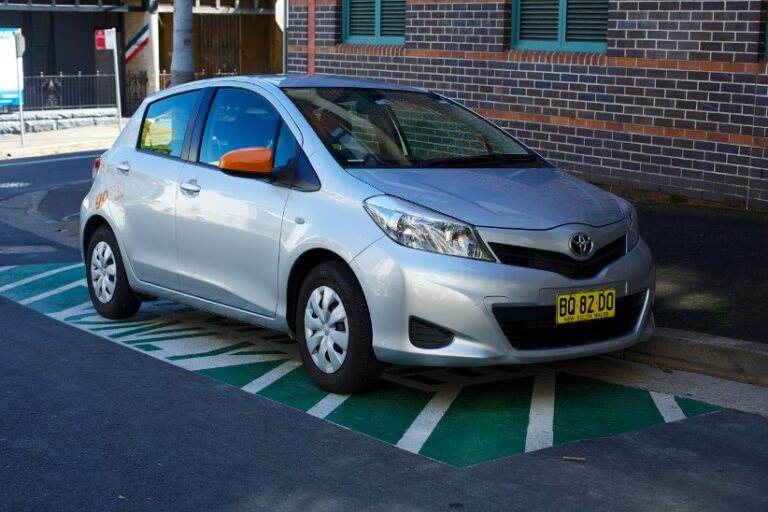– By Gerard Norsa –
The rapid emergence of car-pooling as a viable alternative to car ownership or leasing is set to have a massive impact on the current models of fleet management when you look at the diversity of options now available.
One of the main plenary sessions at the recent 2016 Australasia Fleet Conference and Exhibition in Melbourne brought together a range of experts in the car-pooling industry.
Interestingly, the car sharing session was preceded by a keynote address from Jim McKinley, General Manager of connected intelligence company Telogis who duly noted that we are now in the era of “the internet of everything” where over 50 billion devices are now connected.
Here comes the selfie generation
He believes that irrespective of the attitude of current fleet managers and drivers, it has to be remembered that the “Selfie Generation” is rapidly joining the workforce and they have totally different attitudes to what they are used to.
“We are quickly heading towards a world when we are no longer fleet managers but instead we are mobility managers,” McKinley said. “The attitude and the way of thinking of the next generations is totally different to what our generation knows.
“They are connected all of the time and they have heightened expectations about everything and they want it now. With the advent of services like Uber, many of them will never own a licence. As these new attitudes enter the workforce, they don’t need a car but they do still need their mobility managed.
“That’s the challenge for organisations going forward. So, all organisations need a connected intelligence strategy as business increasingly becomes all about doing more with less.”
The rise of car-share solutions
This keynote led nicely into the discussion that followed about car-pooling and various new models that have emerged and that are now getting significant traction.
Chris Vanneste, Head of Locations and Partnerships for share car vendor, GoGet said that his organisation’s model is based on membership with origins in the consumer space but it is increasingly becoming a viable corporate solution worth considering.
“While car sharing services such as GoGet have the potential to be cost-effective, the greatest advantages are in transparency over vehicle use,” Vanneste said. “The real value for organisations in using pool cars is when they are integrated into the fleet as an alternative to taxis and rental.
“Technology now offers secure authentication, automated booking and access so there are no keys to retrieve and there is no paperwork to manage.”
What about peer-to-peer?
While the GoGet model relies on a traditional location-based car-share, membership model, Chris Noone, Campaigns Manager for leading Australian peer-to-peer car share company DriveMyCar, said that his organisation basically facilitates people renting out their cars to other people.
“At the core, we are about monetising idle assets and under-utilised assets,” Noone said. “Every fleet management organisation has to meet this challenge as it is a massive drain on their profit and loss.
“Peer-to-peer car sharing on a market-based online platform is a pathway to generating revenue by turning an idle asset that is owned by one company or individual into an asset that can be used by another company or individual who needs that asset.
“This is not a fad. It is a large and growing trend not just in vehicle management but right across the collaborative and share economy. So far it has been very popular for consumers but it is now well and truly moving into the corporate space.”
Melbourne Uni’s pool-car solution
Chris Stavrou, Fleet Co-Ordinator at Melbourne University, who was also on the panel at the AfMA conference then went on to discuss his organisation’s implementation of a pool car system to improve vehicle utilisation and to automate a lot of manual processes.
Prior to implementing new technology, Melbourne University used three full time staff to manage a fleet of over 300 vehicles at city and rural locations. Their car pooling service involved a lot of paperwork and someone had to manually hand out keys and then someone else had to manually bill out the service to the responsible cost centre.
“Our appointed fleet management organisation, SmartFleet had already developed online booking software, so we decided to undergo a trial,” Stavrou said. “Our goals were initially to eliminate manual booking and access management processes and, in the longer term, to improve vehicle utilisation and to reduce the fleet size all of which would help us save money on the way our fleet was managed.”
There is now an online booking service and a PIN controlled key locker operating in their largest central car park that manages the shared use of a component of the fleet vehicles. There are now over 1000 staff using 10 pool cars.
“The journey was not without its speed bumps but we go there in the end. It means our fleet vehicle users no longer have to rely on another person to book, pick-up and return a car,” Stavrou said. “As a result, we managed to reduce our fleet size by 33 per cent and reduced the number of staff in fleet management operations from three to one.
”We have achieved a car sharing solution that involves practically no paperwork, a fully automated online booking system and secure key pick up that operates 24/7 and there is no longer a need for paper log books in vehicles.
“There is no doubt that this sytem has saved us significant time, resources and money in the management of our fleet.”






